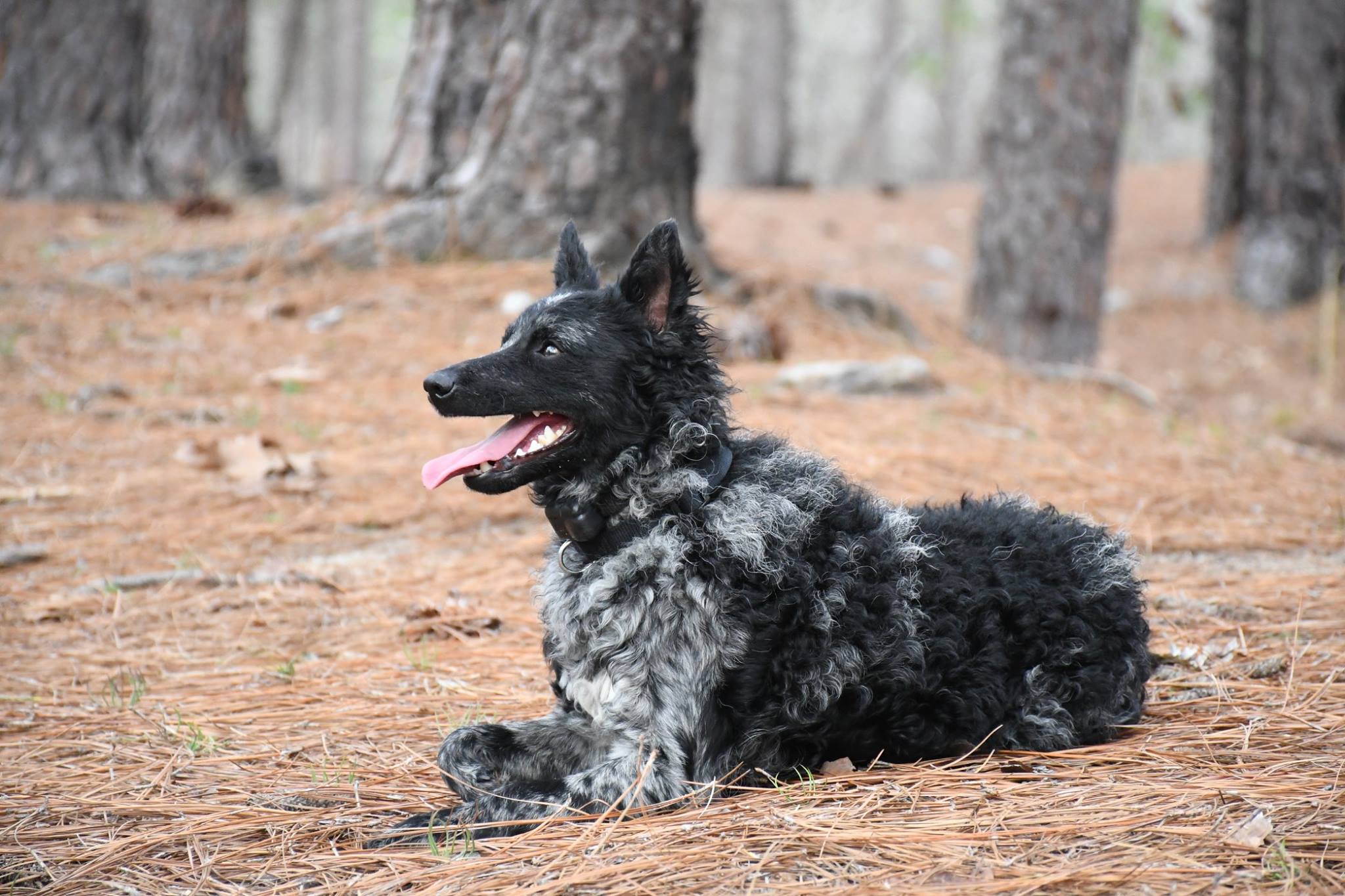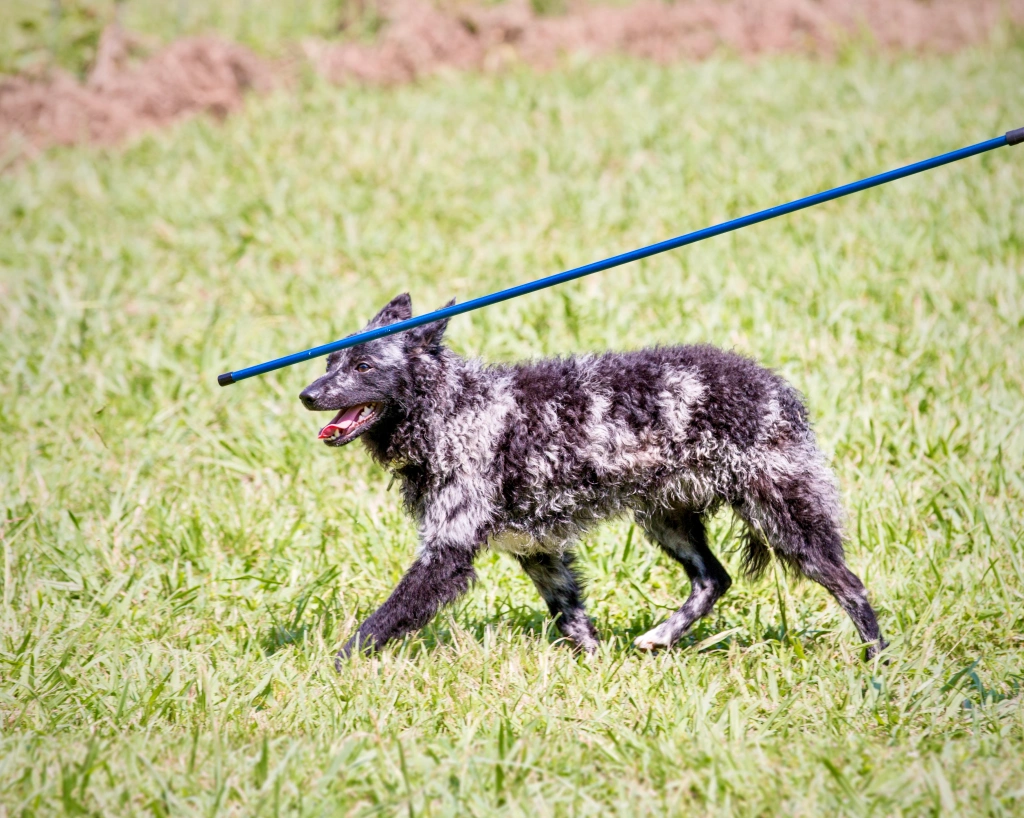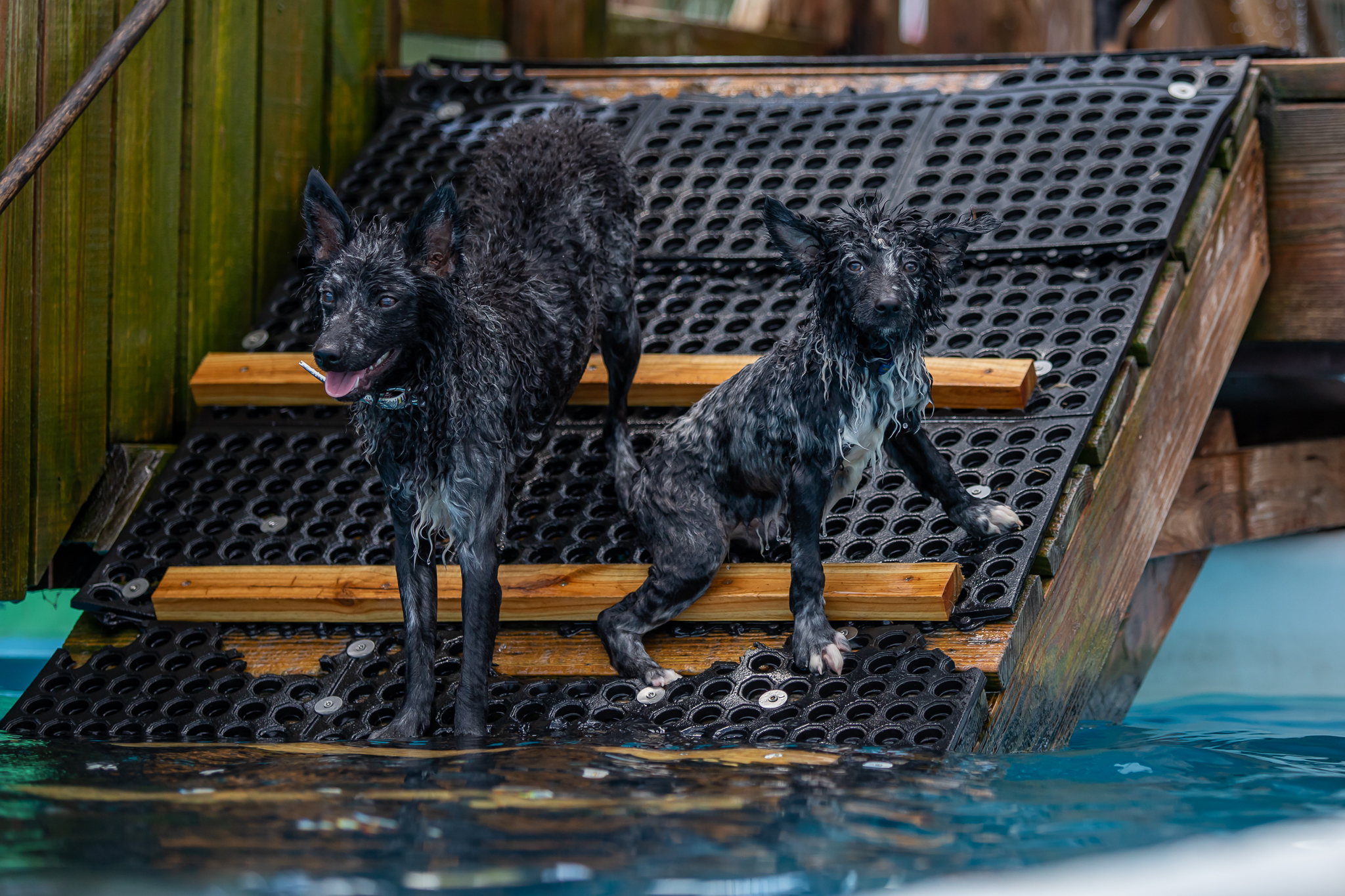
The Mudi, often pronounced as “moody,” is a fascinating medium-sized herding dog originating from Hungary, with a history dating back to the 19th century. This unique breed is believed to have naturally evolved from crosses of the Puli, Pumi, and German Spitz breeds. Today, the Mudi, although rare, is recognized for its active, intelligent, and highly trainable nature.
There are only a few thousand Mudis worldwide, and the United States is home to approximately 300 of them. Mudis excel in various sports, such as agility, obedience, disc, and dock diving. Their true calling lies in herding, where they’ve demonstrated their prowess in handling both cattle and sheep. They’ve also earned recognition as search and rescue dogs, notably in Finland and the U.S. The Mudi is currently recognized by the AKC Foundation Stock Service and is part of the UKC Herding Group.
Mudis come in two tail varieties, tailed and naturally bobbed, with the important note that their tails should never be docked. They have distinctive prick ears, and any drop or tipped ears are considered unacceptable.

Here are some key details about the Mudi:
- Size: Mudis typically stands at 15-17 inches at the withers and weigh between 17-28 pounds.
- Life Expectancy: They have a relatively long lifespan of 12-14 years.
- Coat: The Mudi’s coat is characterized by its thickness and wavy-to-curly texture. The degree of curl may vary between individuals, but it ranges from soft waves to tight, kinky curls, distinct from Pumi or poodle curls. Their coats are dense, and no part of their body should be hairless or sparsely furred.
In terms of temperament, Mudis are often described as a unique blend: 70% herding dog, 20% terrier, and 10% spitz. Their herding instincts are strong, but they can display the cheekiness and attitude of a terrier and occasional bursts of the spitz personality. It’s essential to acknowledge their historical role as all-around farm helpers and guardians, making them inquisitive, observant, and sensitive to environmental changes. They are known for being alert barkers, but with proper socialization, they can accept strangers warmly. Mudis are brave and will fearlessly step in if they perceive a need to protect.
Proper socialization from a young age is crucial, as some Mudi lines may be more fearful and reactive than others. Without early socialization, they might struggle to accept strangers or exhibit fearful aggression towards other dogs.
In terms of exercise, Mudis need regular, intense physical activity but should have an “off switch” indoors, where they can settle with training. These dogs are highly efficient and do not tire easily, making them renowned for their speed, agility, and intelligence.
Training is a must for Mudis, preferably starting early. They are brilliant thinkers who enjoy challenges but can grow bored with repetitive routines. Short, lively training sessions with frequent positive reinforcement work best for them. Mudis have a strong problem-solving ability, and many are motivated by food and toys.

Grooming is relatively straightforward for Mudis, who have a dirt-repelling coat that typically doesn’t mat or cord. Monthly bathing and minimal combing are usually sufficient for their wash-and-wear coat. Some Mudis may shed seasonally, requiring more frequent brushing if they are heavy shedders.
In essence, the Mudi is a unique and remarkable breed with a rich history and a range of characteristics that make it a fascinating choice for dedicated and experienced dog owners.